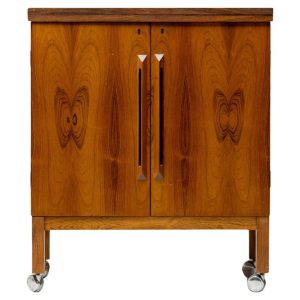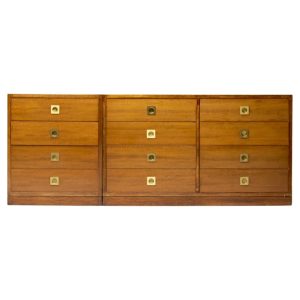Item Description
This very rare asymmetrical corner cabinet has been preserved from the original interior of the former orphanage and current national monument “Het Burgerweeshuis” in Amsterdam, The Netherlands. “Het Burgerweeshuis” (Amsterdam Orphanage) in Amsterdam-South was built in 1958-1960 by renown Dutch architect Aldo van Eyck and is the first example of structuralism. Aldo van Eyck gained a lot of prestige at home and abroad with it. Aldo van Eyck (1918–1999) was a Dutch architect renowned for his influential contributions to modern architecture and urban design. Emerging post-World War II, he played a pivotal role in the development of the structuralist movement. Van Eyck’s designs, characterized by geometric clarity and a focus on human-scale spaces, often integrated elements of playfulness and adaptability. Notably, he designed the iconic Amsterdam Orphanage, where he emphasized the importance of communal spaces and the well-being of children. Van Eyck’s philosophy, deeply rooted in humanism, sought to create environments fostering social interaction and a sense of belonging. His enduring legacy continues to inspire contemporary architects worldwide.














